Display videos
Yes, I'd like to see videos dispalyed.
As a teenager he played for TuS Osdorf, a sports club in the district of Altona. As a U19 player he joined FC St. Pauli where the qualified electrician was in the squad of the second tier club from the 1974/75 season and he made his debut in May 1975 in a 4-0 away for the Hamburg team in Münster. The defender was a first choice in the Pauli first team the season after and he went on to play in all 38 games. After four successful years at Millerntor, where Demuth helped St. Pauli achieve their first promotion to the Bundesliga in 1976/77, Bayer 04 signed him in 1979. Leverkusen had just been promoted to Germany's top flight for the first time.
The ball-winning and strong in the air central defender, who formed the rugged central defence alongside Jürgen Gelsdorf, made 92 Bundesliga appearances and scored 14 goals along the way. The reliable penalty taker, who scored eight goals from the spot for Bayer 04, will always have a place in the history of our club for two events. On the first matchday in the 1979/80 season, Demuth converted a penalty on 62 minutes for the final score of 3-1 to Bayern Munich at the Olympic Stadium in Munich and thus became our first Bundesliga goalscorer. In addition, he was the first Bayer 04 player to score the Goal of the Month as voted for on Sportschau. In February 1980, the Sportschau audience voted his flying header against MSV Duisburg as the best goal.
Didi's time under the Bayer Cross ended four years later. His next club was Kickers Offenbach where he was unable to prevent the newly promoted club going down so he moved back to his hometown a year later to play at the Millerntor in the second division. Demuth went up and down from the second tier with the Hamburg club over the next four years.
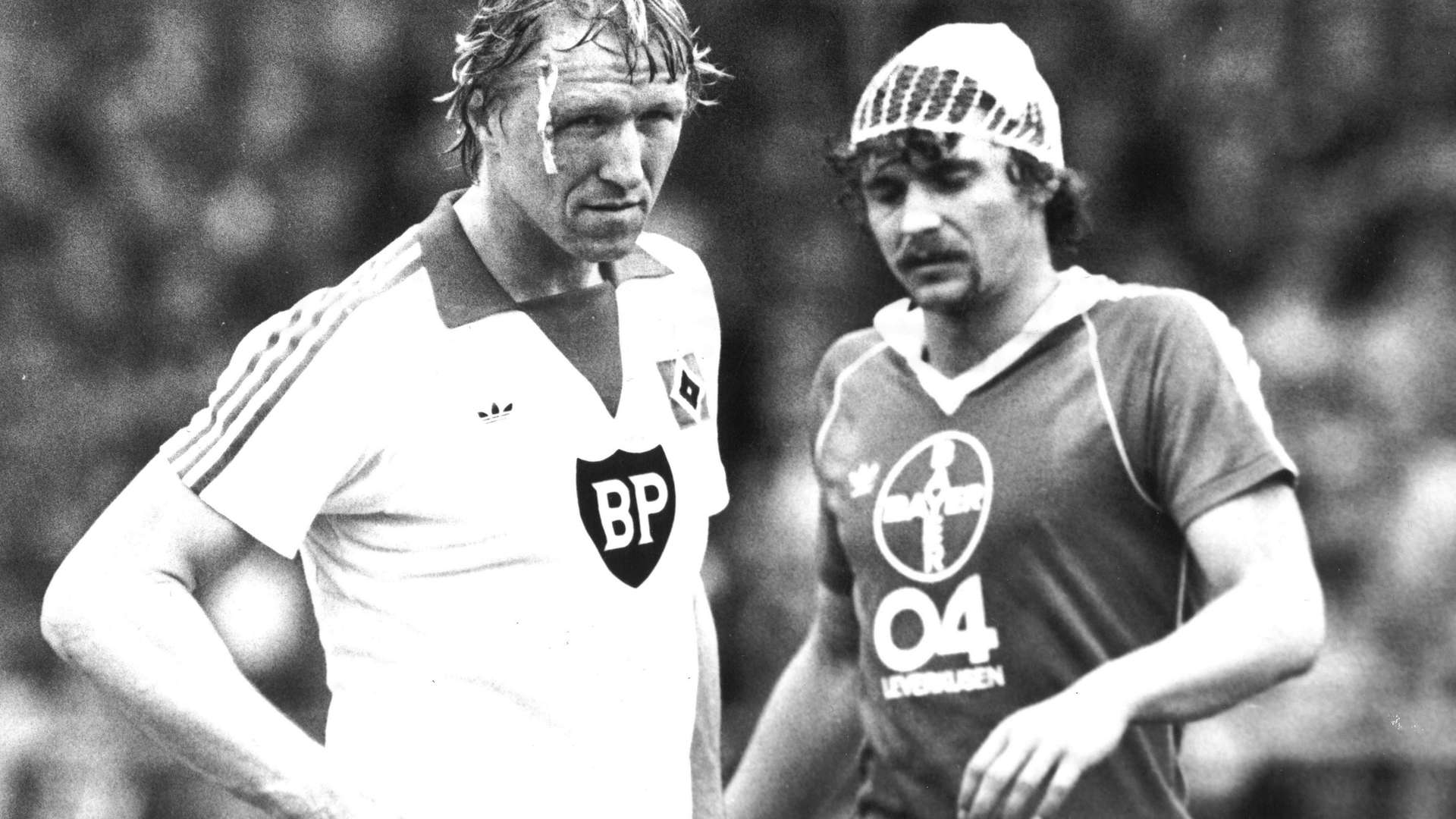

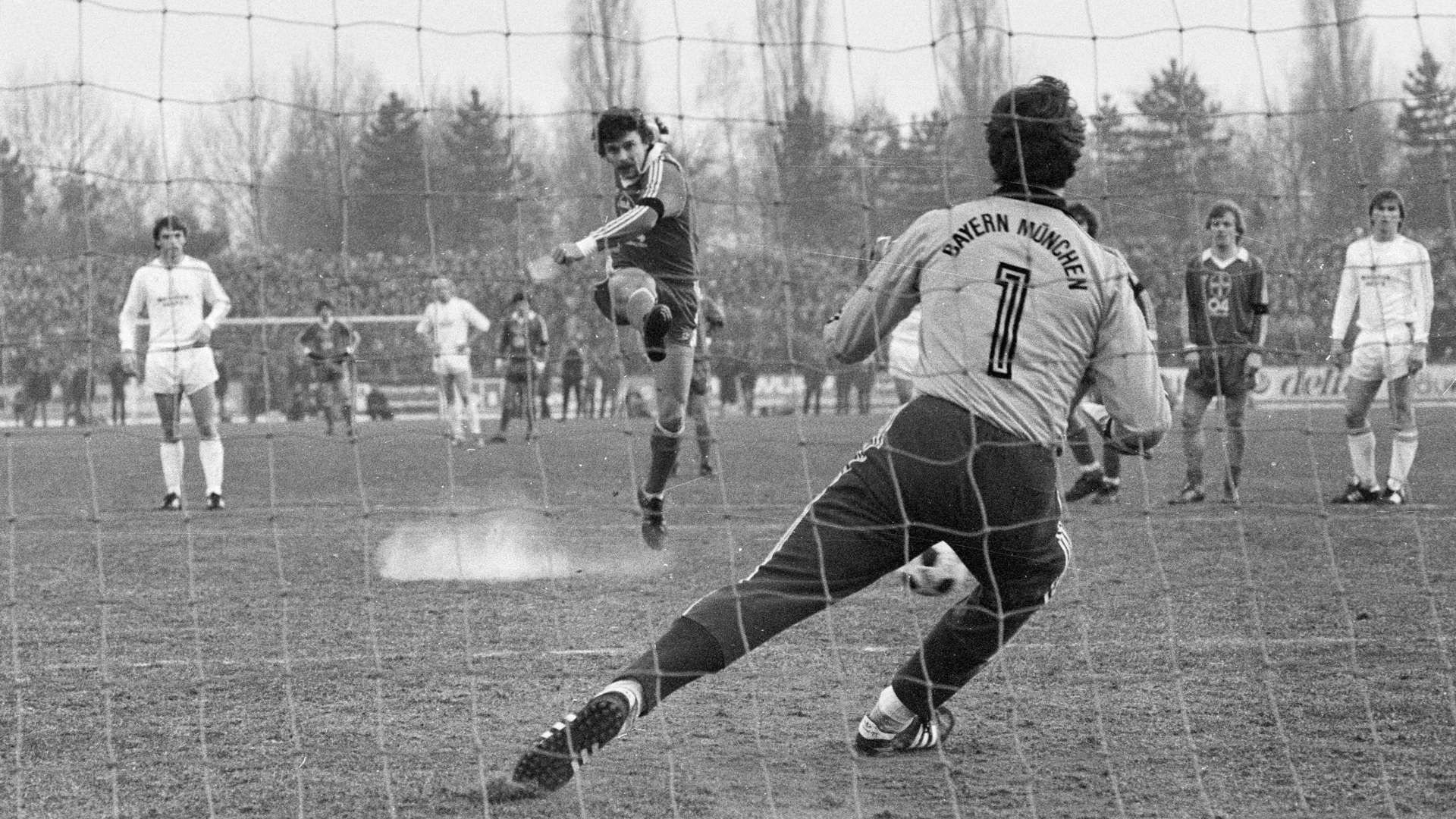
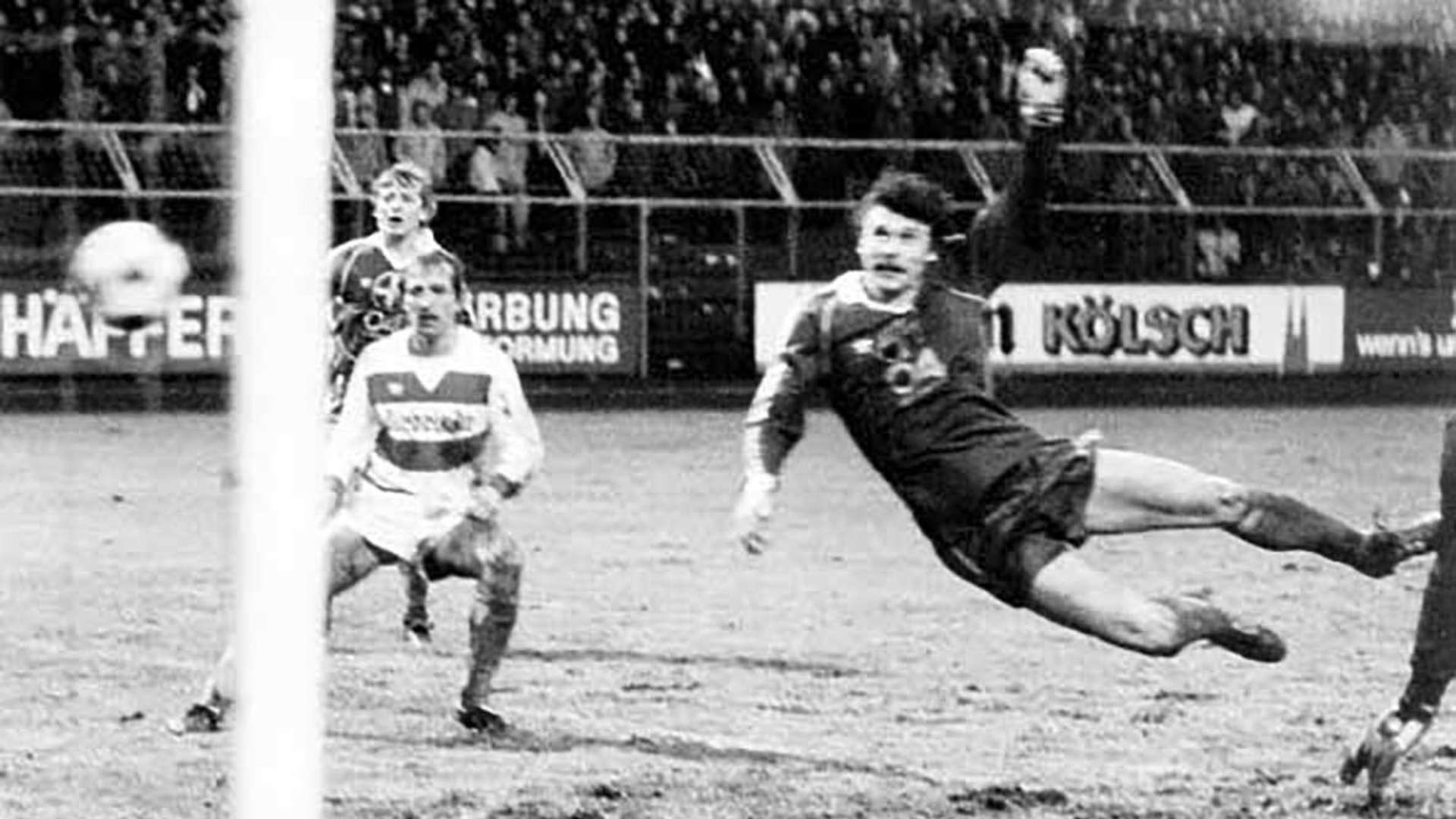
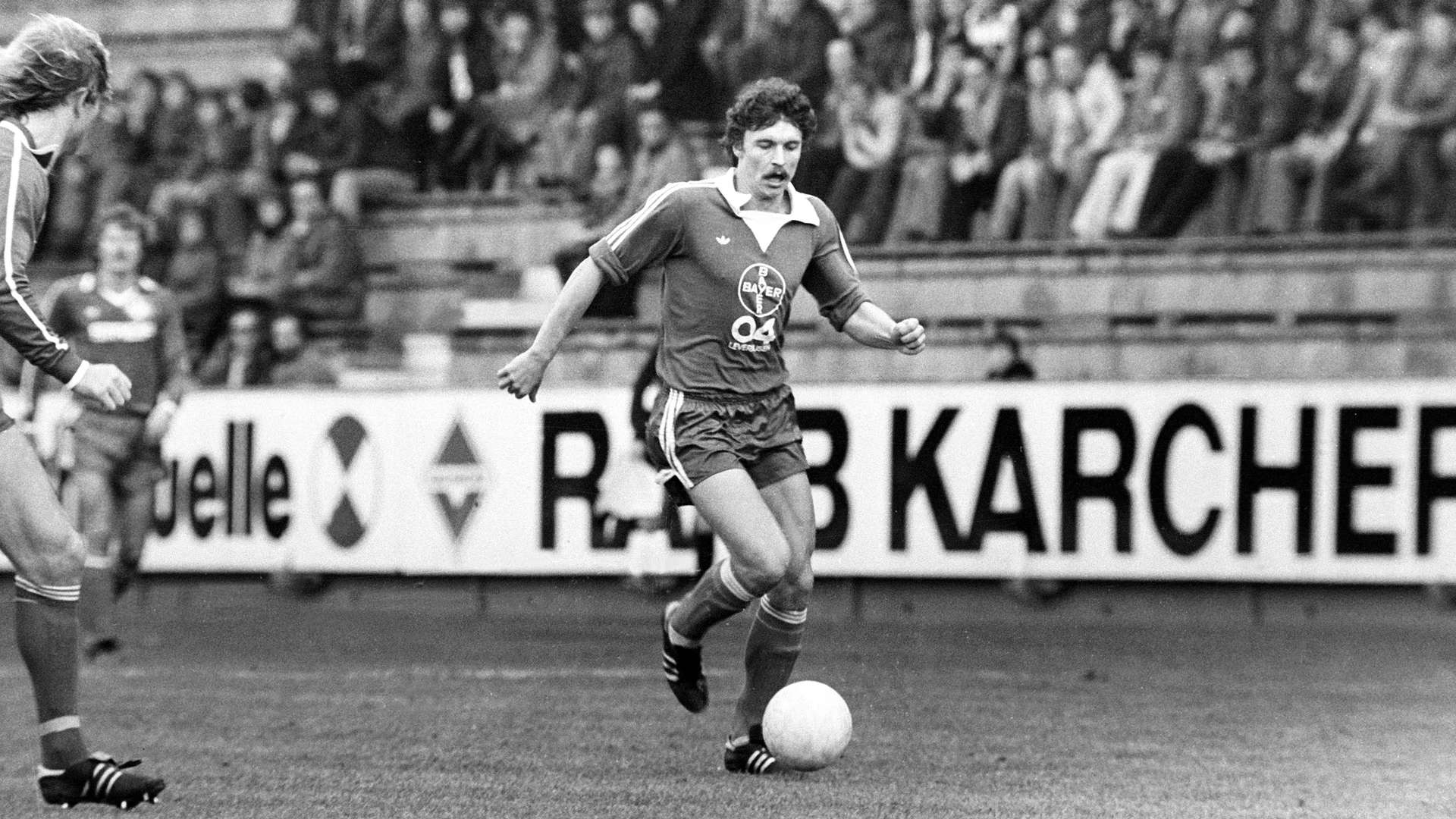
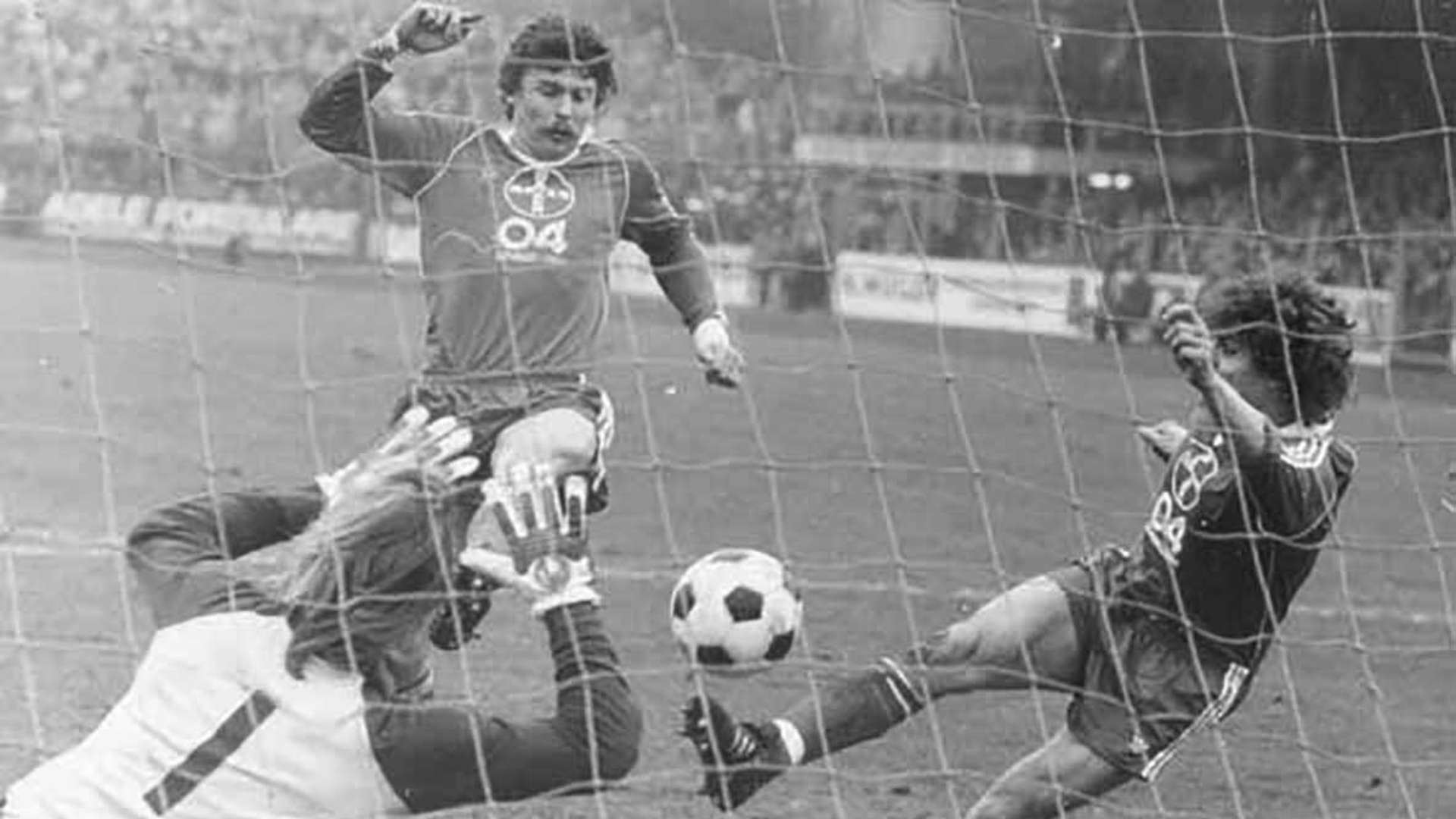
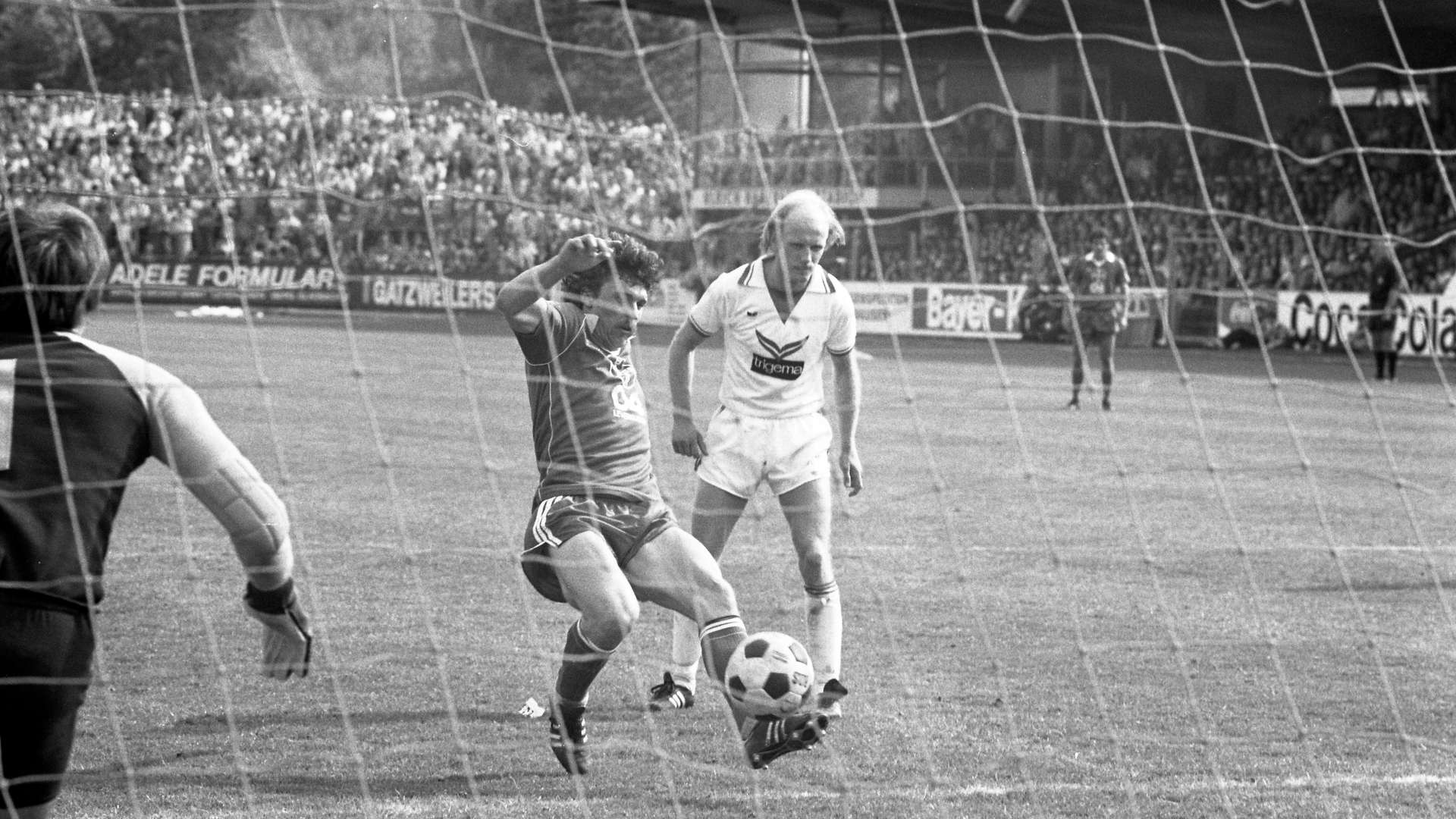
Didi began his second career in football as a coach in 1990. First he was in charge of the second team at FC St. Pauli And in the following years he again and again moved between the head and assistant coaching posts at different clubs. In January 1999 his path, as an assistant coach alongside head coach Willi Reimann, took him back to the second division side from Millerntor. Just over a year later, in March 2000, he was in sole charge of the team and he saved FC St. Pauli from relegation from Bundesliga 2 and, out of the blue, he then achieved promotion a season later. The Hamburg side battled against relegation from the start in the Bundesliga and in the end had to accept the bitter drop to the second tier. But the Demuth team went into the history books on 6 February 2002. A Wednesday match under floodlights, unforgettable for every St. Pauli fan, saw a battling St. Pauli team beat the reigning champions of Germany and World Club Cup winners Bayern Munich 2-1. Since then Pauli have been known as the "World Club Cup winners beaters."
After relegation, Dietmar left the club after two heavy defeats in Bundesliga 2 in the summer of 2002 and he went on to be the head coach at a lot of different clubs in the following years. That took him to Ghana and to SV Babelsberg where his team played the Werkself in the first round of the DFB Pokal in the 2009/10 season. His side only lost 1-0 in a tight game.
After further posts at lower league clubs the coach Dietmar Demuth has had a quieter time in recent years. He can now look back at a very successful time in football and this year he is 70 years old in January.
Dear Didi, I wish you all the best on your birthday. Have a great time and stay fit and well.
Related News
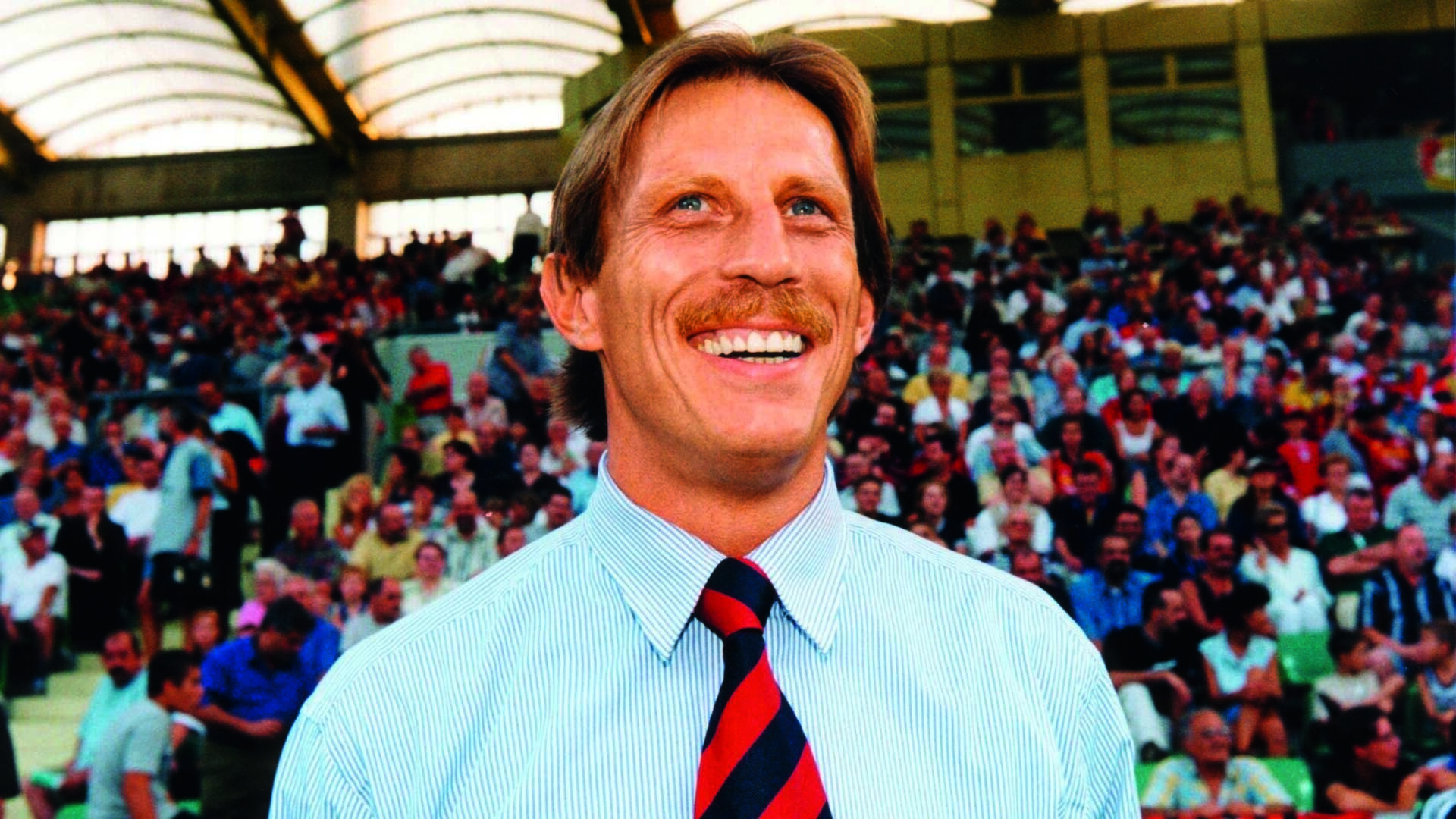
Legend: Christoph Daum - The man who taught us to want
Christoph Daum was born on 24 October 1953 in Zwickau. As a child, he moved to West Germany with his mother and grew up in Duisburg. He developed a great enthusiasm for football at an early age, even though it soon became clear that his future lay less on the pitch than on the sidelines. Even at a young age, his passion for analysing, explaining and improving things became apparent.
Show more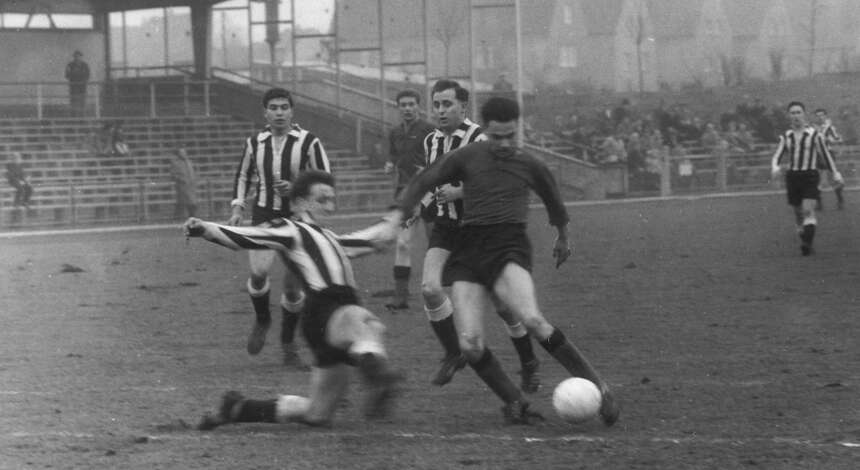
From the archives: 65 years ago - Another victory at last
When the Bayer 04 players celebrated Christmas in 1960, they spent the winter in second place in the Oberliga West 2 on 20 points - but already five points behind leaders Schwarz-Weiß Essen. However, coach Erich Garske's team are struggling to get back on track in the new year. A goalless draw against Bonner FV at home at the Ulrich Haberland Stadium was followed by a 2-1 away defeat in Erkenschwick. The following home game also yielded just one point. As a result, the team's promotion ambitions dwindled to a minimum, as the gap to the coveted spot has now grown to a challenging ten points.
Show more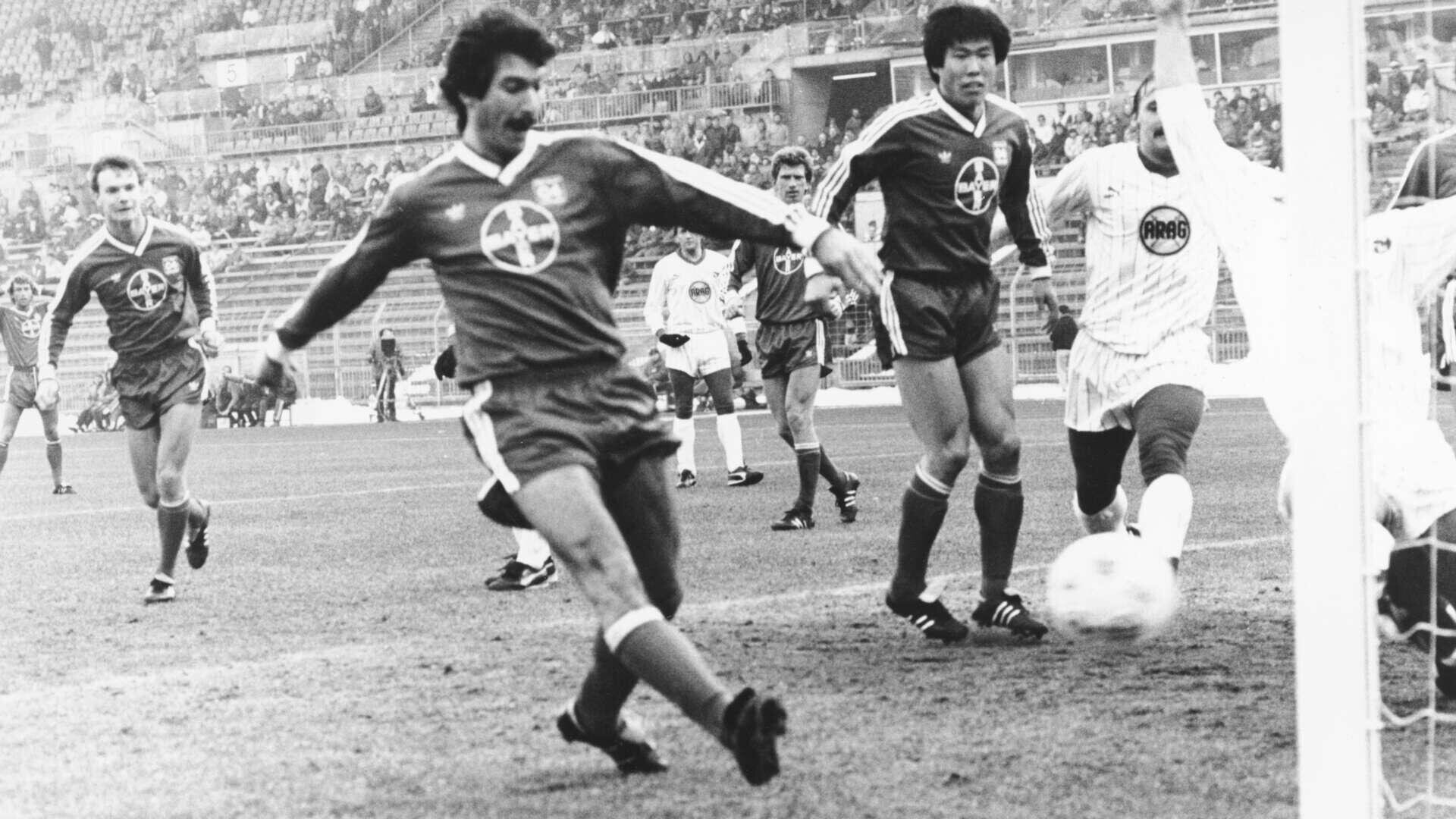
Goals of the month: From Waas to Tapsoba
In this video you can see impressive and important goals in Bayer 04 history from the month of February. It's not always about the beauty of the goals, but also a reminder of special games and players.
Show more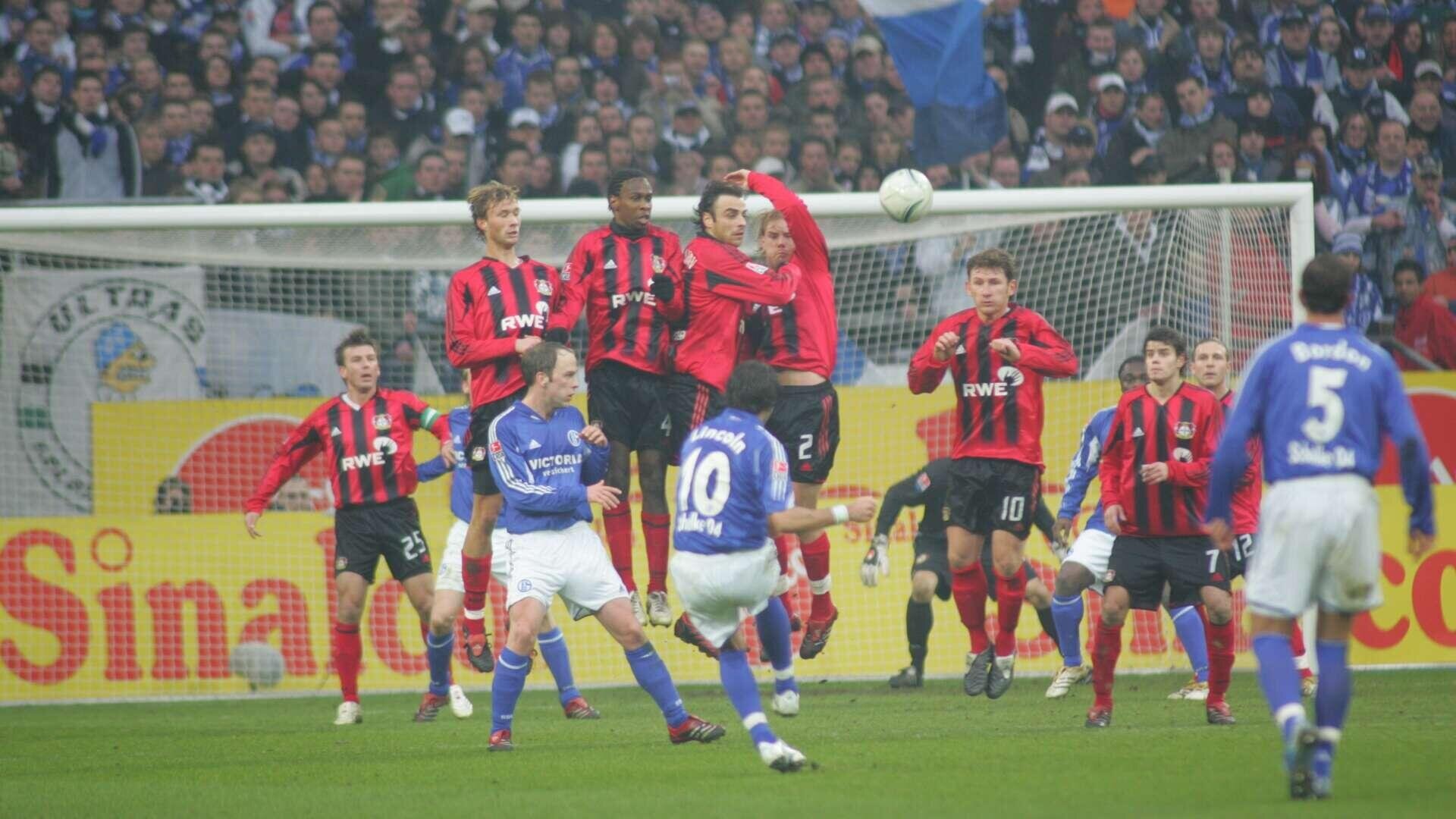
Match of the month: 20 years ago - A game of goals galore
It is 11 February 2006 and Schalke 04 and the Werkself kick off at 3.30 p.m. in a match that ends up being historic - at least from a Bayer 04 perspective.
Show more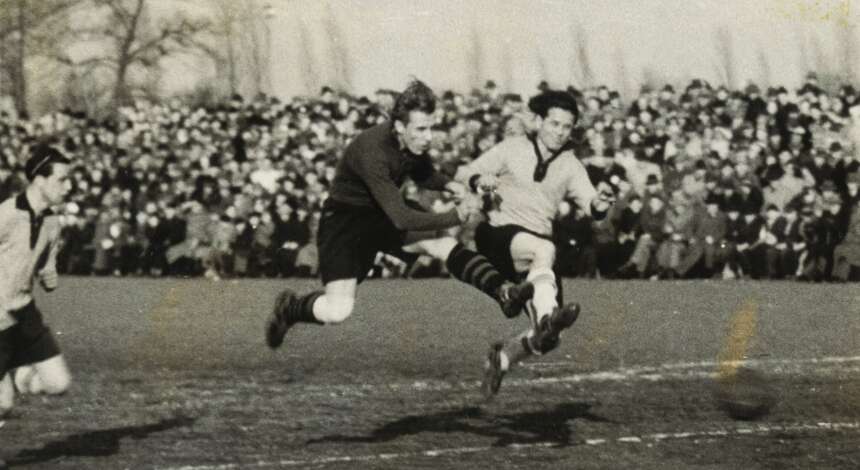
History: 75 years ago - The 1950/51 season (February)
As league leaders, the Werkself welcomed the relegation-threatened team from Rhenania Würselen. On 4 February 1951, 5,000 spectators line the touchlines despite the Sunday carnival parades. And they see a home team that is superior on the pitch. Without Theo Kirchberg, who was ill, and Emil Becks, who was suspended, the hosts attacked the opposing goal from the start. Battling against a strong wind in the first half, Bayer 04 created chance after chance, but were repeatedly thwarted by the Würselen goalkeeper. With the score at 0-0 at half-time, Karl Heinz Spikofski tried his luck on 55 minutes and hammered the ball into the opposition net from 20 metres out. Rhenania can no longer counterattack. The siege of the Würselen penalty area continued right to the end, but the game ended in a narrow 1-0 win.
Show more